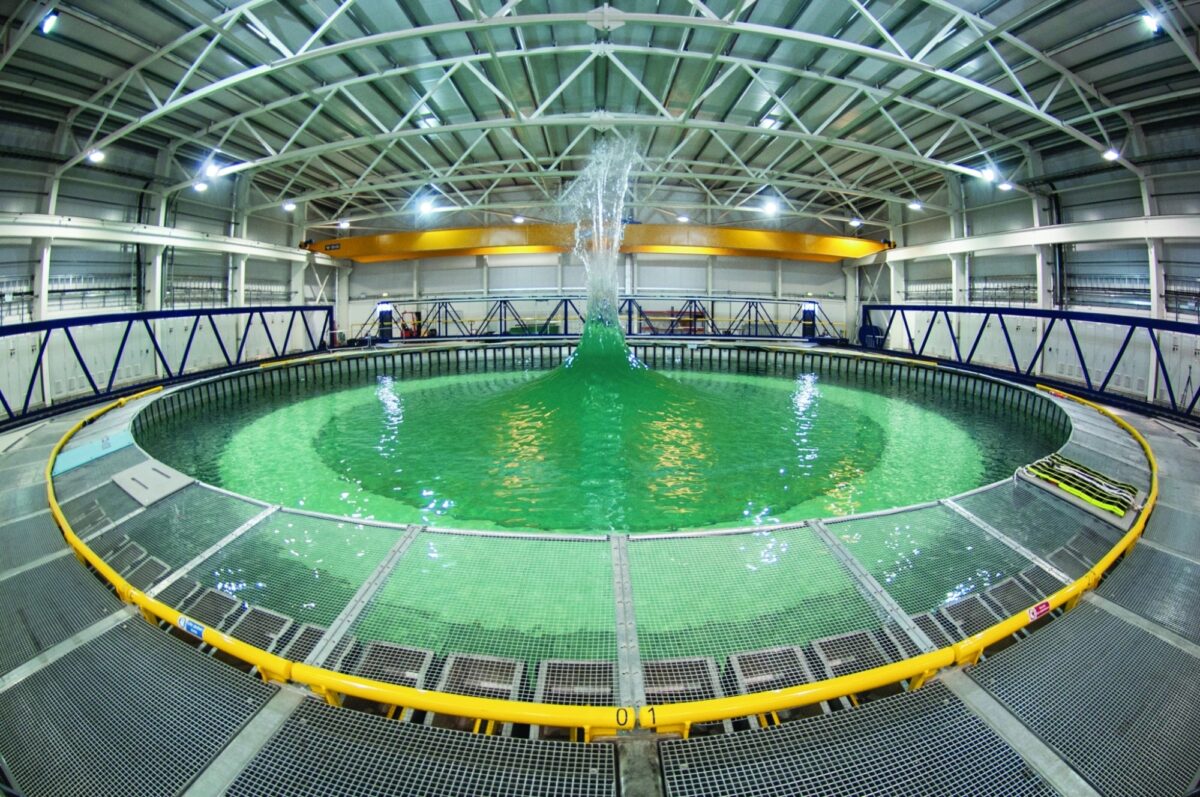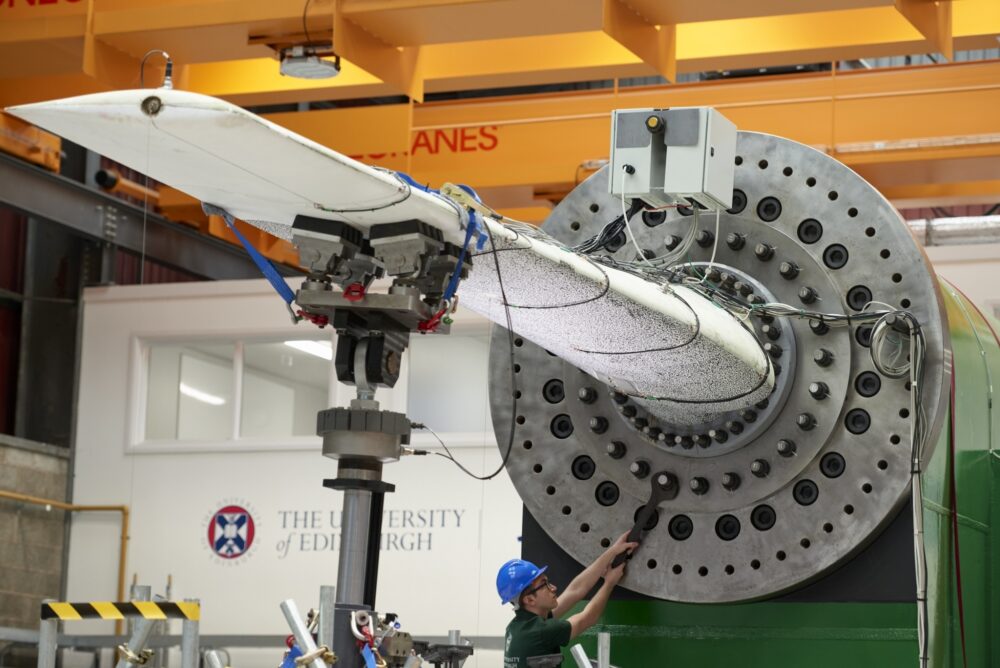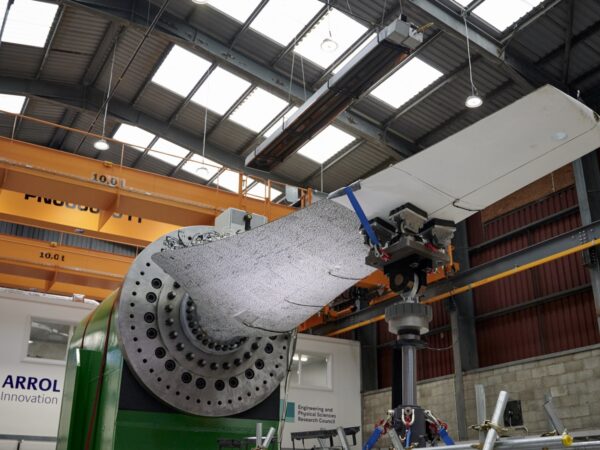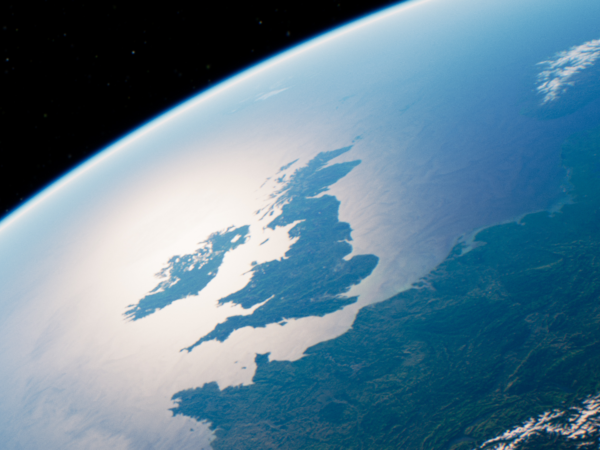
The University of Edinburgh ranked joint first in the world for ‘industry, innovation and infrastructure’ in the Times Higher Education Impact Rankings 2024, which measure universities’ delivery of the United Nations’ Sustainable Development Goals (SDGs). This is a fantastic endorsement of the University as a world leader in climate research, teaching and action. It reflects ongoing efforts to foster collaborative partnerships with sustainability at its core.
As part of the University of Edinburgh, Edinburgh Innovations (EI), the University’s commercialisation service, enables many different journeys to real-world impact through innovative industry partnerships, entrepreneurial activity and policy support. Working throughout the University, EI drives collaborations focused on implementing solutions to the climate crisis and on the transition to a green economy.
Supporting Innovation
We house exceptional facilities to support innovation in science and engineering that help us to understand and address climate change and related sustainability challenges. These range from laboratories to develop carbon capture methods or to use biotechnology to improve the sustainability of products and materials, world-leading data science infrastructure to measure and predict climate change, to cutting-edge renewable energy testing facilities such as FloWave and FastBlade.
FastBlade is the world's first facility for testing the performance and durability of tidal energy blades. EI supported the School of Engineering to engage with Babcock, through workshops and funded secondments, ultimately developing a strategic partnership and the co-creation of the multi-million-pound EPSRC FastBlade facility at Rosyth.
The FloWave facility harnessed over 40 years of research to enable technology developers (wind or tidal energy) to accelerate the testing of their technology and research in response to the rise of global renewable energy demand, by stimulating real-world marine conditions in a controlled testing environment.
An example of the impact of our science and engineering activities to support enterprise on climate and sustainability, is University of Edinburgh startup Mocean Energy – which designs and delivers ocean energy equipment to support the transition to clean, renewable energy. Since its launch in 2013, the company has maintained strong links with the University through access to FloWave, co-location on campus and more, recently having received investment via Old College Capital - the University’s in-house venture investment fund.

Centres for Excellence
While the University educates the next generation of engineers and scientists, we also inform and advises current policy makers, energy developers and providers. IDCORE and the Policy & Innovation Group are renowned centres of excellence by which we do this.
The University plays a central role in the EPSRC Industrial CDT in Offshore Renewable Energy Programme (IDCORE) alongside the Universities of Strathclyde and Exeter, and the Scottish Association for Marine Science. Its purpose is to accelerate the deployment of offshore wind, wave and tidal-current technologies ensure the next generation of engineers and scientists can meet our climate objectives. The Programme is guided by an Industrial Steering Board comprising representatives from professional bodies, employers and regulators to ensuring essential collaboration again between university and industry.
Housed in the School of Engineering, the Policy and Innovation Research Group is a multidisciplinary unit comprised of expertise across energy technologies, systems providers, and regulatory policy. The Group has become a leading presence in defining ocean energy strategy and investment roadmaps for UK, European and US governmental departments and industry partners.
We are in no doubt about how complex and urgent the challenge of climate change now is. The University of Edinburgh has the expertise and facilities to tackle these challenges. EI ensures that the University of Edinburgh’s scientific and engineering capability and infrastructure continue to deliver positive environmental and societal impact and to be at the forefront of innovation in the emerging net zero carbon, circular economy.


